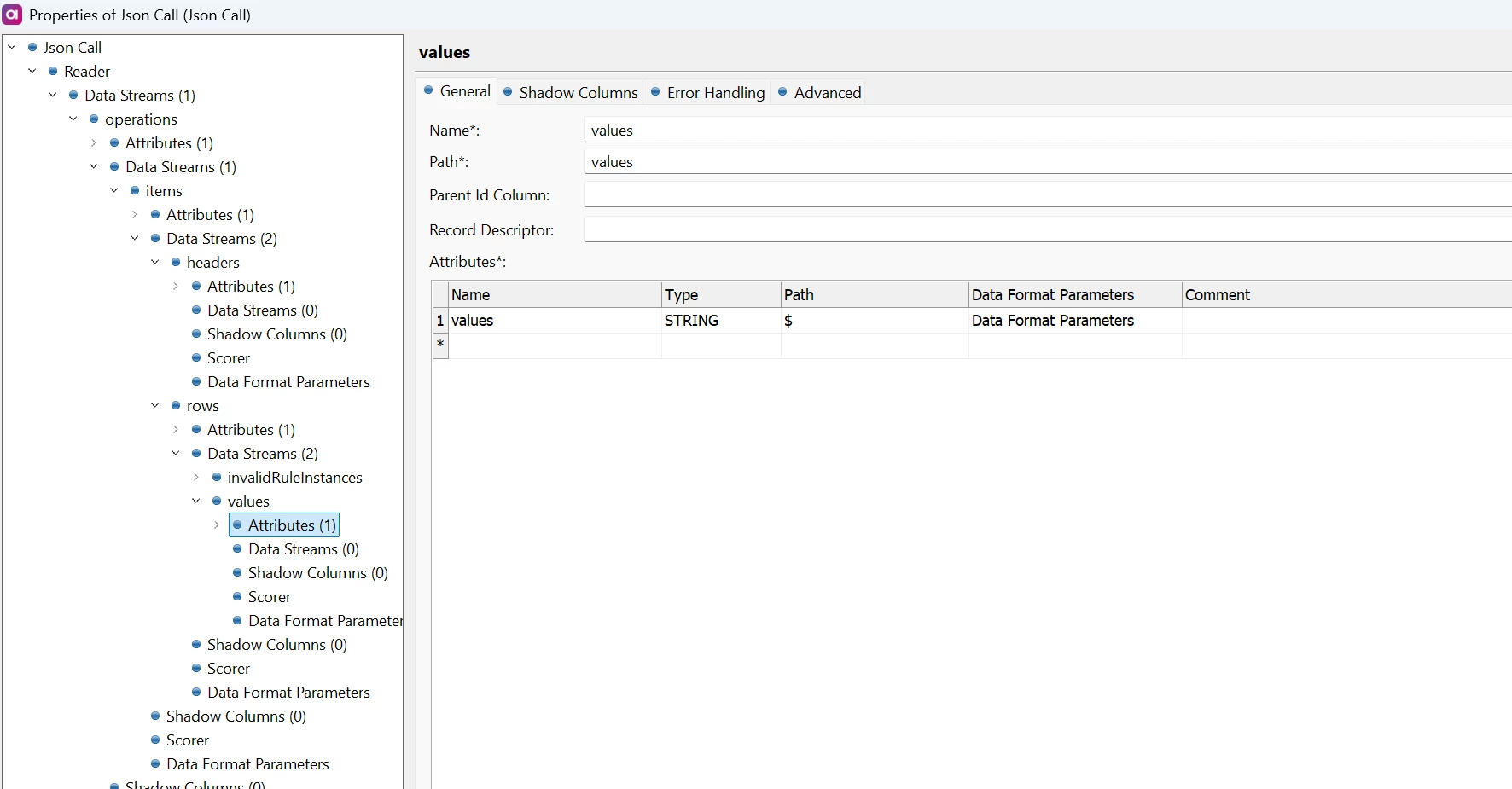Hi
Not like any other array in JSON, the values array does not have key - value structure. Instead, it is like values: (array) 0: <no key> only values. When I run ONE Desktop Plan, I am only getting blank rows. Please help Thanks.


Hi
Not like any other array in JSON, the values array does not have key - value structure. Instead, it is like values: (array) 0: <no key> only values. When I run ONE Desktop Plan, I am only getting blank rows. Please help Thanks.


No account yet? Create an account
Enter your E-mail address. We'll send you an e-mail with instructions to reset your password.